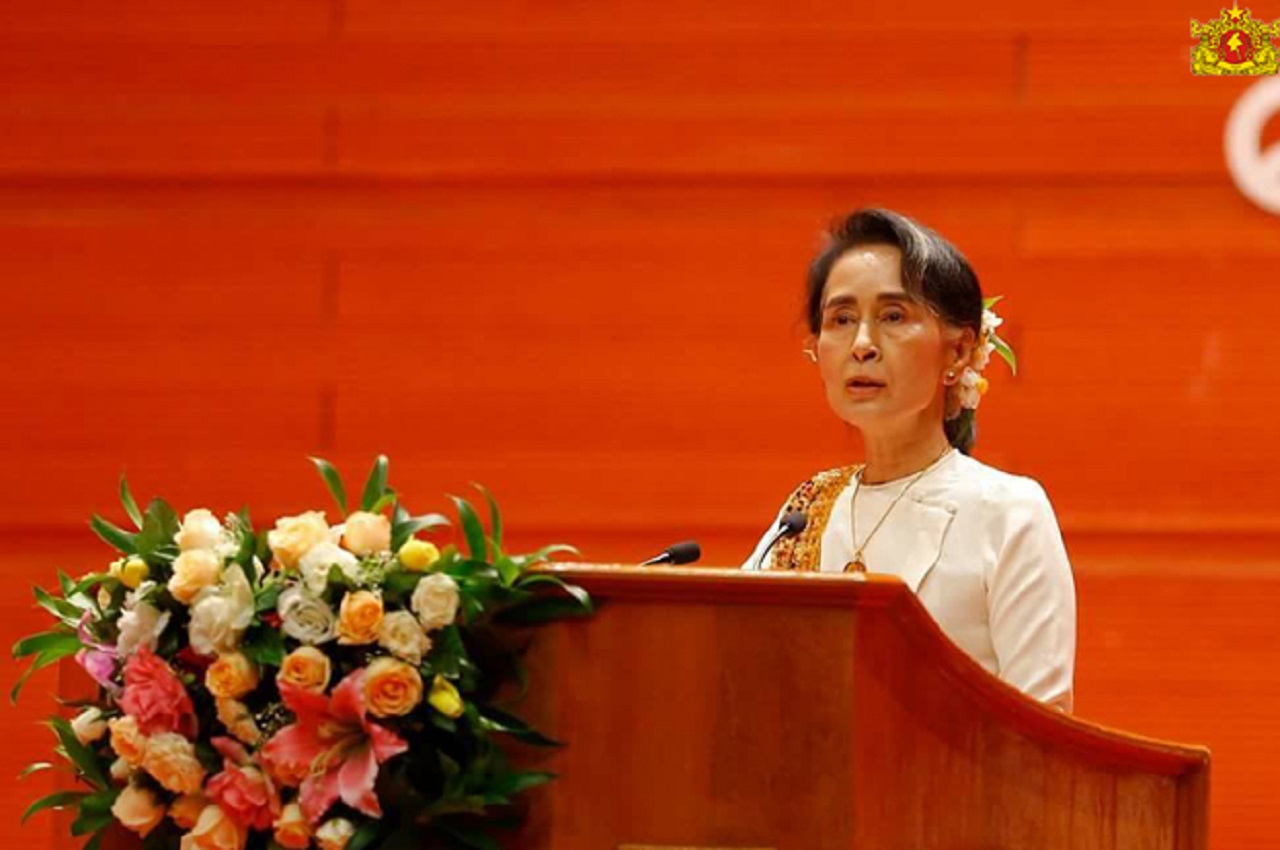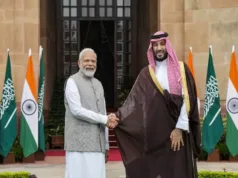
Aung San Suu Kyi has finally broken her silence on the ongoing Rohingya refugee crisis.
In a live televised address, Myanmar’s State Counselor and de facto leader said that she was “aware of the fact that the world’s attention is focused on the situation in Rakhine State” and that Myanmar “does not fear international scrutiny.”
Speaking in front of a packed auditorium in the presence of Myanmar government officials and high ranking militarily personnel in the capital Naypyidaw, she began her address by highlighting the fragile nature of Burmese democracy and how little time her own party had been in power.
“After half a century or more of authoritarian rule, now we are in the process of nurturing our nation,” she said.
Addressing the situation in Rakhine State directly for the first time, Suu Kyi said that her government still needed to find out “what the real problems are.”
“There have been allegations and counter-allegations. We have to listen to all of them. We have to make sure those allegations are based on solid evidence before we take action,” she said.
“We want to find out why this exodus is happening. We’d like to talk to those who have fled, as well as those who have stayed,” she said.
Suu Kyi did not mention the Rohingya specifically, instead referring in broad terms to Muslims and Muslim groups. Notably, her only use of the term “Rohingya” was in reference to the “Rohingya Salvation Army” which she claimed was “responsible for acts of terrorism.”
Suu Kyi canceled her trip to the United Nations General Assembly this week so she could stay home and handle the situation in Rakhine State. However, some analysts believe that Suu Kyi is trying to avoid the spotlight as she’s come under harsh criticism for ignoring the mass exodus of people from her country.
Human rights activists, fellow Nobel laureates and the world’s Muslim community have condemned Suu Kyi for failing to use her position as a government leader and moral authority to speak out on behalf of the Rohingya.
“Burma is a complex nation,” Suu Kyi said in her speech. “Its complexities are compounded by the fact that people expect us to overcome all these challenges in as short a time as possible.”
Suu Kyi’s political party swept to victory in the country’s democratic elections in 2015 and the role of State Counselor was created for her, as she is constitutionally barred from serving as president.
The military still wields a significant amount of power, and under the constitution the Commander-in-Chief is not answerable to anyone, he doesn’t report to Aung San Suu Kyi and he can’t be fired.
The government of Myanmar declared the Arakan Rohingya Salvation Army (ARSA) and its supporters, responsible for the acts of terrorism, as a terrorist group in August.
More than 400,000 Rohingya have fled since the end of August.








